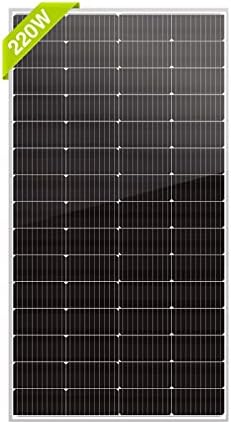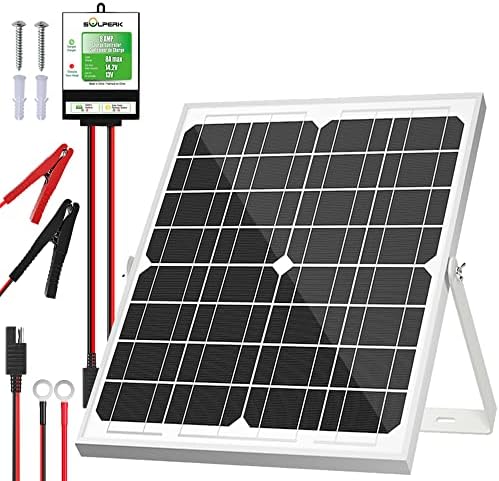# Going Off-Grid: How Off-Grid Solar Systems are Revolutionizing Energy Independence
There’s something exhilarating about waking up to the sound of birds rather than alarms, the only light filtering in from the early morning sun streaming through the window. This is a daily reality for those embracing the off-grid lifestyle, and there’s one key player making this possible—off-grid solar systems. With an independence that feels refreshing, turning away from conventional power sources has never been more appealing or accessible. Off-grid solar systems are not just revolutionizing energy independence; they’re paving the way for a sustainable future, one home at a time.
### The Rise of Off-Grid Living
In recent years, a significant shift has occurred in how we perceive energy consumption. The subtle hum of wires and the overwhelming reliance on fossil fuels are being replaced with a harmonious connection to nature. The desire for energy independence has sparked a movement toward sustainable living, and off-grid solar systems are at the forefront.
The idea of going off-grid is no longer reserved for hermits or survivalists; it’s become a mainstream choice for those seeking a simpler yet more fulfilling lifestyle. People are not only looking to save on energy costs but also aiming to reduce their carbon footprint, cultivate self-sustainability, and reconnect with nature.
### What Is an Off-Grid Solar System?
An off-grid solar system functions independently of the conventional electrical grid. This innovative setup uses solar panels to capture sunlight, converting it into electricity that can power homes, appliances, and even electric vehicles. These systems often include energy storage solutions like batteries, allowing users to harness and utilize energy even when the sun isn’t shining.
Here are the primary components that make up an off-grid solar system:
1. **Solar Panels**: The heart of any solar system, these panels are responsible for converting sunlight into electrical energy.
2. **Charge Controller**: This device regulates the voltage and current coming from the solar panels, ensuring that batteries are charged properly without being overcharged.
3. **Batteries**: The storage unit of the system, batteries allow for energy to be stored and used when sunlight is unavailable.
4. **Inverter**: This converts the direct current (DC) generated by solar panels and batteries into alternating current (AC), which is commonly used in residential settings.
5. **Distribution Board**: This helps manage and distribute the electricity generated and stored for home use.
### Benefits of Going Off-Grid
Opting for an off-grid solar system comes with a plethora of benefits that make the endeavor worthwhile.
**1. Energy Independence**
Imagine never having to worry about rising utility rates or power outages. With solar energy, you seize control of your energy production. Once installed, your system will generate power at little to no cost after the initial investment, distancing you from volatile energy markets.
**2. Environmental Impact**
By embracing solar energy, you significantly reduce your carbon footprint. Solar power is renewable, clean, and sustainable—an excellent step towards preserving our planet for future generations.
**3. Cost Savings**
Although the initial investment might be substantial, many off-grid living enthusiasts find that long-term savings on energy bills more than compensate for setup costs. Furthermore, various tax incentives and rebates are available for solar installations, making the transition more financially feasible.
**4. Self-Sufficiency**
Going off-grid allows individuals to cultivate independence not just from energy providers but also from other societal constraints. Growing your own food, harvesting rainwater, and living minimally can lead to a fulfilling and enriched life.
**5. Resilience**
In an era of frequent natural disasters and energy crises, having an off-grid solar system provides a safety net. You create a cushion against potential disruptions, whether from severe storms or grid failures.
### My Journey with Off-Grid Solar
Before diving into the world of solar, I wasn’t fully aware of the options available for generating clean energy. But as I learned and explored, the possibilities excited me. Transitioning to an off-grid system wasn’t just about installing solar panels; it was a lifestyle shift toward minimalism, sustainability, and a deeper connection to nature.
Choosing the right components for the solar system was quite the adventure in itself. From researching the best solar panels to calculating battery storage needs, each step taught me something new. After bypassing the traditional routes and embracing renewable energy, I discovered how much I could rely on the sun to power my everyday life.
### Pro Tips for Going Off-Grid with Solar Systems
**1. Start Small, Scale Up**
If you’re new to off-grid living, begin with a smaller solar setup. This allows you to learn the ropes without overwhelming expenses. As you gain confidence, gradually scale your system.
**2. Evaluate Your Energy Needs**
Before investing in a solar system, conduct a thorough energy audit of your home. Knowing your energy consumption patterns will help you design an efficient system to meet your needs without overspending.
**3. Optimize Battery Storage**
Depending on your lifestyle and location, invest in a good battery system. Look for storage solutions that provide ample capacity while being able to withstand climate fluctuations.
**4. Maintain Your Equipment**
Regular maintenance is crucial to keep your system functioning optimally. Clean the solar panels periodically and check the battery health to ensure longevity.
**5. Stay Educated**
The solar industry is rapidly evolving. Stay informed about new technologies, grants, and best practices by joining local or online off-grid living communities. Collaboration and shared experiences can be invaluable resources.
### The Future of Off-Grid Solar Energy
As technology continues to advance, off-grid solar systems are becoming more efficient, affordable, and accessible. Innovations in solar panel efficiency, battery storage, and smart management systems are helping homeowners achieve unparalleled energy independence.
Moreover, policy changes and an increasing public consciousness about climate change are propelling the solar energy movement. As communities worldwide embrace renewable energy, a collective shift toward sustainability is transforming cities and landscapes.
The rise of off-grid solar systems is not just a trend; it’s a revolution in how we produce and consume energy. Whether you’re a suburban homeowner looking to reduce energy bills or a homesteader seeking self-sufficiency, the possibilities are endless.
### In Conclusion
Going off-grid is an empowering journey filled with discovery, independence, and responsibility. With off-grid solar systems leading the charge, embracing this lifestyle is more achievable than ever. By opting for solar energy, you reclaim control over your life and contribute to a sustainable planet.
So why wait? Dive into this vibrant world of off-grid living, and you’ll soon find the joy of harnessing the sun’s energy, becoming part of a global movement that celebrates freedom, sustainability, and a better future for all. Whether you’re basking under the sun or stargazing at night, the possibilities of a simplified life free from conventional energy constraints await you.



